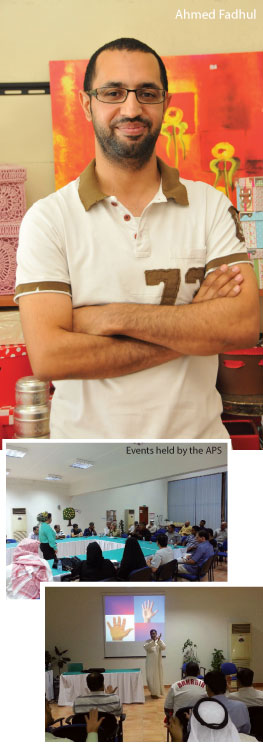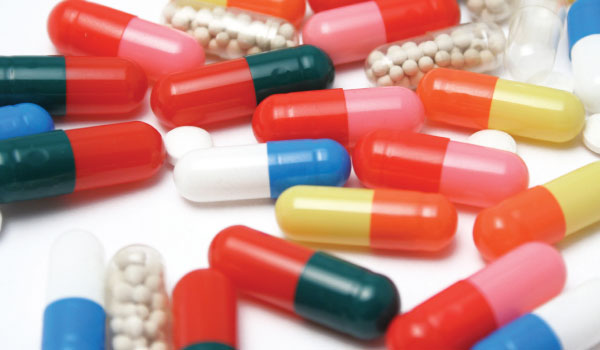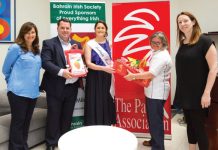Drug abuse has grown wordlessly to become an enormous menace in Bahrain. The International Overdose Awareness Day on August 31 aims to break the culture of silence.
A drug addict is, very simply, someone whose life is controlled by drugs. An addict’s entire existence and thinking is centred on getting the next fix – a complete waste of what could otherwise be a promising life. Substance abuse is gaining in alarming proportions in a small country like Bahrain and is perhaps, the Kingdom’s best kept secret, feel community watchers.
 “While we have no definite statistics for obvious reasons, the United Nations estimated in 2006 that there were about 20,000 to 30,000 drug addicts in Bahrain, some of them as young as 16,” observes Ahmed Fadhul, vice president at Addict Friends Society (AFS) in Bahrain.
“While we have no definite statistics for obvious reasons, the United Nations estimated in 2006 that there were about 20,000 to 30,000 drug addicts in Bahrain, some of them as young as 16,” observes Ahmed Fadhul, vice president at Addict Friends Society (AFS) in Bahrain.
Such is the magnitude of the problem that drug abuse had led to higher incidence of HIV in the Kingdom.
“About 70 per cent of Bahrain’s HIV cases stem from the use of shared IV needles. There are other addicts who feel ashamed to come forward and seek treatment as they fear that they might have contracted HIV themselves,” he notes.
As a specialist nurse, Ahmed works to rehabilitate drug and alcohol addicts at the Almoayyed Drug and Alcoholic Rehabilitation Unit under the Ministry of Health.
Users in Bahrain range from teenagers as young as 16 to people in their late 40s. Women also form a segment of this addiction pool, though their numbers are not very large.
“There are several factors that put young people in Bahrain at risk. Youngsters, who have family problems such as divorce or relationship issues at home, youth facing limited job opportunities and in some cases, pressure from peers. But usually, drugs are an escape from a difficult environment at home,” he believes.
Warning signs
Parents would do well to keep an eye on the people their children associate with. The presence of a burnt spoon and lighter in a teenager’s room, a large number of unaccounted anti-depressant tablets or small slips of paper containing pinches of crystals or white powder all point to a dangerous addiction.
Help is at hand
Addict Friends Society (AFS) started out in 2006 as a small group to help people battle their addiction.
“The rehab centre at the Psychiatric Hospital doesn’t have the facility to house female addicts, which means that women can seek treatment only at the OPD. That was one of the main reasons AFS was launched. Our women’s sub-committee caters for female addicts,” he says.
The society works to support addicts in staying clean, with regular events and workshops aimed at bringing them back into the job market and into society. Meetings are held at the Ministry of Social Development hall in Tubli every Monday evening, where speakers are invited to teach members life skills, such as time management, stress management and tips to improve self confidence.
AFS volunteers dispel some common myths that addicts harbour about their addiction. For instance, Ahmed says many addicts believe that they will fall into relapse if they drop out of treatment or stop going to meetings.
“Many believe that unless they have hit rock bottom, they cannot quit. Others think they cannot go to the mosque because they take drugs and hence, they’re not good Muslims, further isolating themselves. Yet another myth is that those who relapse time and again are hopeless because they’re constitutionally incapable of recovery. We make it clear to them that all these are mistaken ideas and the only thing that will work for them is the genuine desire to stop using,” he says.
Road to recovery
The culture of silence surrounding addiction in Bahrain works to the detriment of groups such as the AFS. According to Ahmed, the first step towards rehabilitation for an addict is to come forward and admit that he/she has a problem. Families who know of an addiction among their members should volunteer to bring the person forward and seek help for them.
Through its Facebook and Instagram pages as well as events and exhibitions held in schools, the AFS encourages addicts to come forward and commit themselves to fight their addiction. It also spreads awareness about the various kinds of drugs flooding the Bahrain market and the damage they cause physically and psychologically.
“Above all, people need to remember that drug addicts are simply patients in the grip of a continuing and progressive illness. Just like people suffering from a major health problem, addicts should be shown compassion. They need a place to get help, proper treatment as well as time and support from family and friends. They should always be given a second chance at recovery,” Ahmed advises.
The International Overdose Awareness Day on August 31 hopes to diminish the shame and guilt associated with drug use. The AFS will hold a meeting at Tubli that evening to give community members information about the issue of fatal and non-fatal overdose. Ultimately, fighting an addiction is a lifelong battle and only a small number of people eventually succeed in kicking the habit for life.
“Many of our members are recovered addicts who have stayed clean for years now. That proves that numbers may be small, but it is possible to recover from the habit,” notes Ahmed.
Visit www.addictfriends.com or call 39 991-881.





































